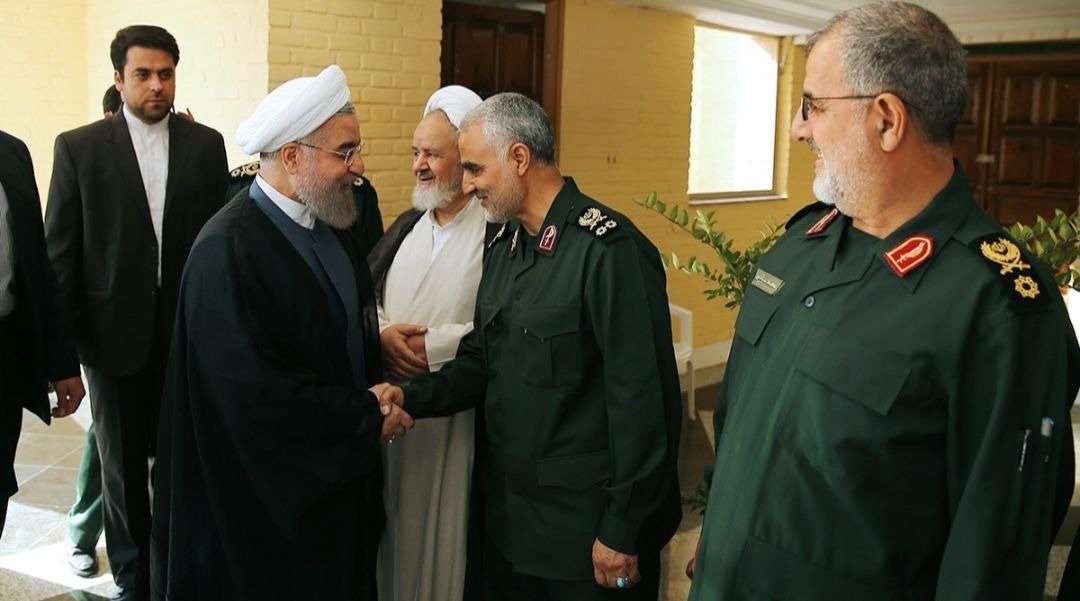
It’s possible that the killing of Iran’s top military commander Qassem Soleimani by U.S. forces will turn out to be a disaster. Everything’s possible in a region where tribal and sectarian conflict under the rule of despots and theocrats has been the norm for centuries.
Will the killing set off another regional war? Will Israel be attacked? Will Iran rush to build a nuclear bomb? Or will Iran be deterred by the sheer brazenness of an unpredictable and bullying U.S. president?
Only time will tell.
The last seismic U.S. action in the region was the invasion of Iraq in the wake of the Sept. 11 attacks, which turned into a $3 trillion debacle that arguably made things worse by increasing Iranian Shiite influence inside a weakened Iraq.
This latest move is not an invasion; it’s an assassination. The arguments against the move center on two points: Why now? And why so extreme?
Regarding the timing, critics point to decades of brutal terrorist activity by Soleimani and wonder: If previous administrations opted not to target him then because it was too risky, why target him now? What changed?
Supporters respond: If a bully keeps punching you in the face over and over again, is there ever a bad time to punch back?
Supporters respond: If a bully keeps punching you in the face over and over again, is there ever a wrong time to punch back?
Soleimani was indeed the bully par excellence in a part of the world that specializes in them.
Writing in The New York Times, Michael Doran, senior fellow at the Hudson Institute, called Soleimani “the architect of the Islamic Republic’s decades-long active campaign of violence against the United States and its allies, especially Israel.”
Soleimani, Doran writes, started with Lebanon, where he “built Lebanese Hezbollah into the powerful state within a state that we know today. A terrorist organization receiving its funds, arms and marching orders from Tehran, Hezbollah has a missile arsenal larger than that of most countries in the region.”
Building on that success, “[Soleimani] spent the last decade replicating the Hezbollah model in Iraq, Syria and Yemen, propping up local militias with precision weapons and tactical know-how.”
Among these many killing fields, the worst must surely be Syria, where Soleimani’s forces “allied with Russia to prop up the regime of Bashar al-Assad, a project that, in practice, has meant driving over 10 million people from their homes and killing well over half a million.”
In Iraq, Doran adds, “hundreds of American soldiers lost their lives to the weapons that [Soleimani’s] Qods Force provided to its Iraqi proxies.”
As Soleimani drenched country after country in blood, including Jewish and American blood, the United States let him get away with it — until it didn’t.
Which brings up the second point of the critics: Why do something so drastic as an assassination? Is it worth the risk? This is a fair point: We are compelling Iran to respond in kind, which can set off a war no one wants.
Supporters challenge that view: The extreme nature of eliminating Soleimani is precisely what can deter the Iranians, who will now be concerned, if not terrified, by what President Donald Trump might do next.
The Iranians can no longer count on a U.S. president who has been reluctant to use military force, tolerating one Iranian provocation after another and responding only with economic sanctions.
Iran, then, is in a bind: To protect its honor, it must be bold and respond harshly; but to protect its country, it must be cautious so as not to provoke the U.S. president.
So, if I’m an Iranian leader plotting revenge, here’s what might be going through my head: “This guy Trump is out of control. If we respond too harshly, he’s likely to take down our oil refineries and shut down our economy. At this point, we can’t put anything past him.”
Iran, then, is in a bind: To protect its honor, it must be bold and respond harshly; but to protect its country, it must be cautious so as not to provoke the U.S. president.
As I write this, we’re already hearing about an Iranian missile attack on a U.S. base. I don’t pretend to know which way the winds of war will blow.
But I do know that I have hopes and dreams. I hope and dream that a regime that hangs gays because they’re gays, oppresses women because they’re women, sponsors more terror than any nation on Earth and is sworn to the destruction of the world’s only Jewish state — well, I hope and dream that such a regime is really scared right now about what might happen if it continues to spread its evil.
The best bully is a scared bully.


































 More news and opinions than at a Shabbat dinner, right in your inbox.
More news and opinions than at a Shabbat dinner, right in your inbox.